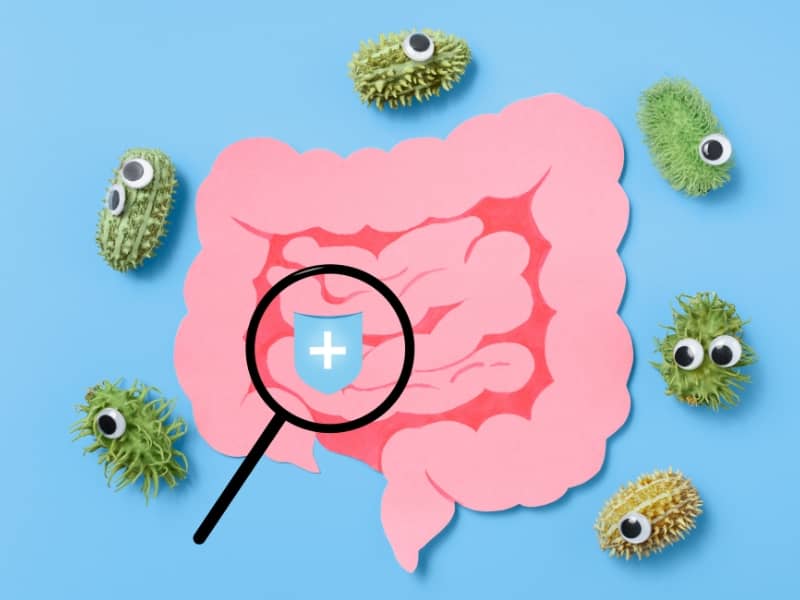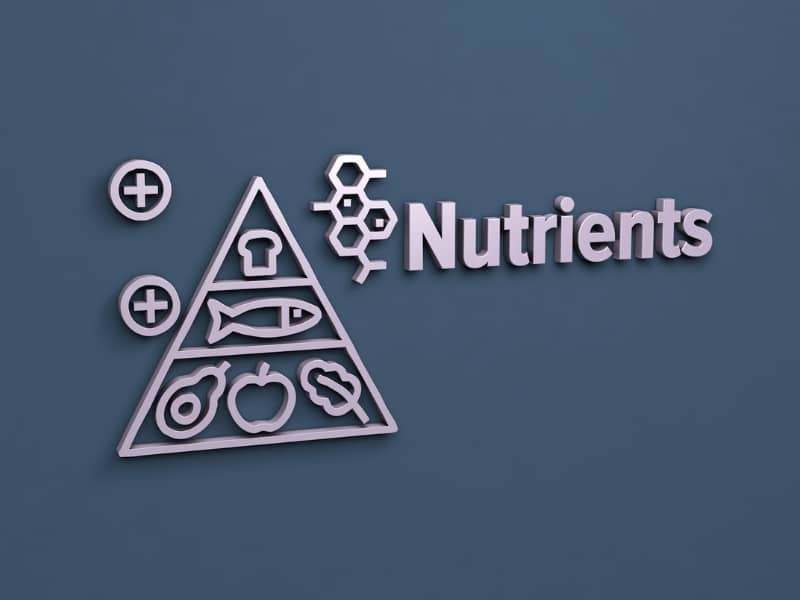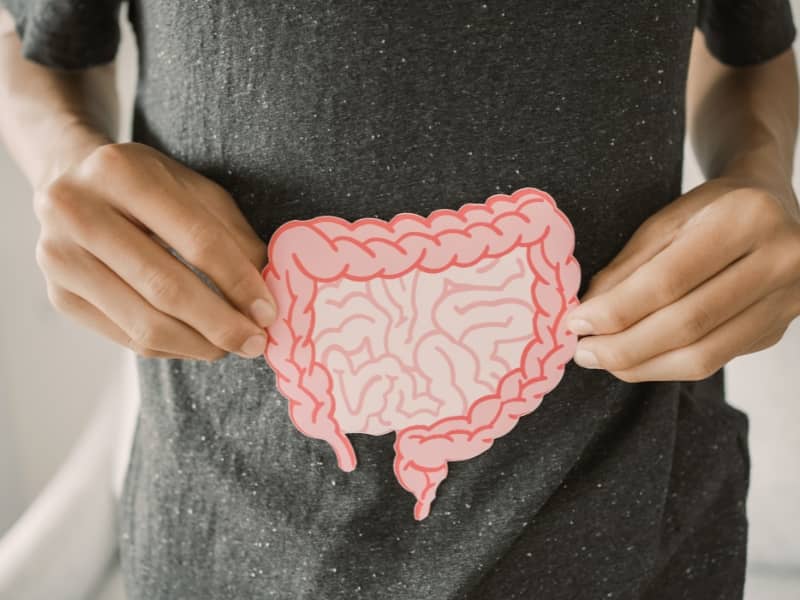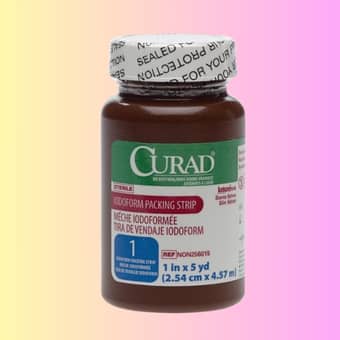There’s growing evidence that your gut health plays a vital role in your weight loss journey. Gut bacteria greatly affect your metabolism, appetite, and cravings. So, it’s important to understand this link. Optimizing your gut health helps create a better place to lose unwanted weight. This guide looks at how gut health connects to weight loss. We’ll help you learn to make smarter choices for your digestion and weight goals.

Table of Contents
Key Takeaways:
-
The gut microbiome is key to metabolism and weight control. It affects how the body processes and stores fat.
-
Healthy gut bacteria can lower inflammation and improve insulin sensitivity. Both factors are key to a healthy weight.
-
Diet affects gut health. Foods high in fiber and probiotics boost the diversity and function of gut bacteria.
-
Imbalances in gut bacteria can cause cravings for unhealthy foods. They can also make it hard to lose weight.
-
Eating fermented foods and taking probiotics might aid weight loss. They can also boost metabolic health.
I. Understanding Gut Health
Your gut health is key to your well-being. It relies on a strong balance of microorganisms in your digestive system. A healthy gut improves digestion, helps absorb nutrients, and strengthens your immune system. Taking care of your gut health can boost both your body and mind. This can help you manage your weight better.
1.1. Types of Gut Microbiomes

Your gut microbiome has many types of bacteria. These bacteria help with different aspects of your health. These include:
-
Firmicutes
-
Bacteroidetes
-
Akkermansia
-
Proteobacteria
-
Actinobacteria
This diversity is necessary for efficient digestion and metabolic functions.
| Type | Function |
| Firmicutes | Energy absorption |
| Bacteroidetes | Breakdown of dietary fiber |
| Akkermansia | Metabolic regulation |
| Proteobacteria | Involved in inflammatory responses |
| Actinobacteria | Beneficial for gut health |
1.2. Factors Affecting Gut Health

Various factors can impact your gut health, including:
-
Dietary choices
-
Hydration levels
-
Physical activity
-
Sleep quality
-
Stress levels
Seeing these factors can help you make better choices for your gut health.
Health plays a significant role in how your gut functions. What you eat and how you handle stress can change your microbial balance. This, in turn, affects digestion and nutrient absorption. The body thrives on a harmonious relationship among these elements.
-
A diet rich in fiber.
-
Regular exercise
-
Probiotics and prebiotics’ intake
-
Adequate sleep
-
Stress management techniques
This approach can help your gut health and support your weight goals.
II. The Connection Between Gut Health and Weight Loss
Any discussion about weight loss always includes a reference to gut health. Your gut has a strong connection to weight loss. A healthy gut can help you lose weight. Healthy gut flora help with digestion, control blood sugar, and influence hunger hormones. These factors are key to managing your weight.
2.1. How gut health influences metabolism.

Loss of gut health can lead to metabolic disruptions. When bad bacteria outnumber good ones, it can cause inflammation and insulin resistance. This can slow down your metabolism. A balanced gut microbiome can boost your metabolism. This helps you maintain or lose weight with greater ease.
2.2. The Role of Gut Bacteria in Weight Management
You might not know this, but the bacteria in your intestines help manage your weight. These microbes can affect your cravings. They also impact how your body absorbs nutrients and stores fat. A balanced microbiome helps with digestion. It can also make you feel full after meals. This may help you avoid overeating and keep your weight in check.
Bacteria in your gut work with the food you eat. This interaction affects how your body reacts to various nutrients. Certain gut bacteria can break down dietary fiber. This process releases short-chain fatty acids. These acids help improve metabolic health and make you feel full. Your gut flora can affect your appetite. So, it’s important to eat a diet rich in probiotics and prebiotics. This will help with your weight loss efforts.
Origin Gastrointestinal Edition>>>
III. Tips for Improving Gut Health
To enhance your gut health, consider implementing the following strategies:
-
Incorporate probiotic-rich foods, such as yogurt and kefir.
-
Consume plenty of fiber from fruits, vegetables, and whole grains.
-
Stay hydrated by drinking enough water daily.
-
Avoid overuse of antibiotics and processed foods.
-
Manage stress through techniques such as meditation and yoga.
These changes can lead to a large improvement in your gut health and wellness.
3.1. Dietary Changes

To boost your gut health, add a variety of foods to your diet. Focus on whole, unprocessed foods that support the growth of beneficial gut bacteria. Ensure you’re including prebiotic and probiotic sources to create a balanced intestinal environment.
3.2. Lifestyle Modifications
Improving your gut health also involves making mindful lifestyle changes.
To keep your digestive system healthy, you should:
-
Engage in exercise on a regular basis.
-
Get enough sleep.
-
Manage stress
These practices support not only gut health but also your wellbeing.
Health plays a significant role in how your gut functions. Regular exercise boosts digestion and increases microbial diversity in your gut. Prioritizing quality sleep enhances your gut’s ability to repair and regenerate. Mindful practices help manage stress. This not only aids digestion but also supports a balanced gut microbiome. Each lifestyle modification is a step toward creating a healthier you.
IV. Step-by-Step Guide to a Healthier Gut

Unlike popular belief, improving your gut health doesn’t require drastic changes overnight. Instead, you can achieve a healthier gut through small, manageable steps. Below is a guide to help you improve your gut health step by step:
| Action | Description |
|---|---|
| Evaluate Your Diet | Identify foods that support gut health and those that may hinder it. |
| Stay Hydrated | Drink plenty of water to aid digestion and nutrient absorption. |
| Incorporate Probiotics | Add fermented foods like yogurt and kimchi to your meals. |
| Reduce Processed Foods | Limit sugar and artificial ingredients that disrupt gut health. |
| Increase Fiber | Eat a variety of fruits, vegetables, and whole grains for healthy digestion. |
4.1. Assess Your Current Gut Health
Signs of an imbalanced gut are bloating, irregular bowel movements, and food sensitivities. Check your gut health by noticing how your body reacts to various foods and stress. A food diary can help you spot patterns. It can also show what triggers might affect your gut health.
4.2. Implementing Changes

Making small changes to your diet and lifestyle can boost your gut health. Start with one or two modifications at a time, giving your body the chance to adjust. As you get more comfortable, add helpful practices. Try stress management techniques and regular exercise to support your gut journey.
This approach ensures that you are not overwhelming yourself while making sustainable improvements. Assess the impact of these changes on your gut health on a regular basis. Be patient with yourself during this process. Consistency takes time, but it benefits your gut and well-being.
V. Pros and Cons of Gut Health Approaches
After exploring various gut health strategies, you’ll see that each one has its pros and cons. Knowing these can help you make informed decisions about your health journey.
Pros and Cons of Gut Health Approaches
| Pros | Cons |
|---|---|
| Improved digestion | Can be expensive |
| Better nutrient absorption | Time-consuming |
| Increased energy levels | May cause initial discomfort |
| Weight management support | Limited long-term studies |
| Enhanced mood | Requires ongoing commitment |
| Boosted immune system | Potential for allergies |
| Healthier skin | Complexity of gut microbiome |
| Reduced inflammation | Diet restrictions |
| Potential for disease prevention | Conflicting information |
| Holistic health benefits | Need for professional guidance |
5.1. Benefits of a Healthy Gut
Benefits of a healthy gut extend beyond digestion. You may feel more energetic, happier, and better at absorbing nutrients. This can boost your well-being. When your gut works well, managing your weight can be easier. This gives you a better approach to health, helping both your body and mind.
5.2. Potential Drawbacks

Focusing on gut health has many benefits, but it is also wise to think about possible drawbacks.
Improving gut health often requires big lifestyle changes. These changes might cause some discomfort or limit your diet at first. You may face challenges because the gut microbiome is complex. Individual responses can be very different. Also, some methods lack long-term studies. This can make you unsure about how well they work and whether they are sustainable. Always seek advice and do thorough research before trying any gut health method.
Gut Health and Weight Loss: The Key to Better Results
Summing up, your gut health has a considerable impact on your weight loss journey. A balanced gut microbiome helps with digestion. It also regulates metabolism and controls appetite. Eating a fiber-rich diet with probiotics and prebiotics helps nurture your gut. This, in turn, boosts your well-being and supports your weight loss goals. Knowing this link helps you make smart choices for a healthier gut and body.
FAQ
Q: How does gut health influence appetite regulation?
Gut health is key for appetite control. It produces hormones that tell us when to eat and when we’re full. The gut microbiome has trillions of microorganisms. It can affect hormone release, such as ghrelin and leptin. A healthy gut microbiome supports hormone balance. This can improve appetite control and help with weight management.
Q: What role do gut bacteria play in metabolism?
Gut bacteria are crucial for digesting and absorbing nutrients. They have a direct impact on metabolism. Bacterial species break down dietary fibers. They produce short-chain fatty acids (SCFAs). These SCFAs can boost metabolic processes. A diverse gut microbiome can help extract energy from food better. This may support weight maintenance and loss.
Q: Can an unhealthy gut microbiome lead to weight gain?
Yes, an unhealthy gut microbiome can contribute to weight gain. Dysbiosis means an imbalance in gut bacteria. It can cause more inflammation and insulin resistance. This can promote fat storage and hinder weight loss efforts. Maintaining a healthy gut microbiome through diet and lifestyle can support weight management.
Q: How does inflammation related to gut health affect weight loss?
Chronic inflammation is often linked to bad gut health. It can make weight loss harder. Inflammation can change how the body metabolizes. It raises insulin resistance, which makes it harder to burn fat. Dietary changes can improve gut health. This may lower inflammation and aid in weight loss.
Q: What dietary changes can improve gut health and support weight loss?
Eating high-fiber foods, fermented items, and various fruits and vegetables boosts gut health. It also helps with weight loss. Yogurt, kefir, sauerkraut, and fiber-rich foods help keep your microbiome healthy. Whole grains and legumes are great choices, too. This can improve digestion, lower inflammation, and boost metabolism.
Origin Gastrointestinal Edition>>>
Last Updated on August 2, 2025 by Holistic Healths





